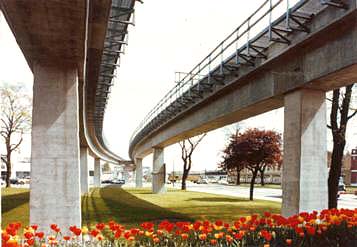Communication Plan Objectives
As soon as the program outline and budget have been formally approved,
execution of the program must be worked out in detail. The plan
must start with a set of detailed objectives together with corresponding
supporting tasks, complete with target dates, resources required,
cost estimate, and method of measuring performance.
A typical set of objectives for a Communications Plan might therefore
appear as follows:
- Establish and maintain a timely and accurate public information
source
- Establish
project procedures for the dissemination of consistent information
- Establish resources for the collection and collation of progress
information as it becomes available
- Correlate project progress milestones to PR program initiatives
- Develop local
community information programs in response to local concerns
- Have available
up-to-date information packages and presentations for local community
groups, including schools
- Emphasize the need for safety at all times
- Keep media contacts fully informed, especially those who appear
to be sympathetic to the project
- Develop a system of review and feedback to alert the project
to any issues that might become adverse
- Monitor and control the program to ensure optimum benefit from
the effort
Project #2: ALRT
On the Transit project all of the objectives described above were
vigorously pursued. For each item listed, specific tasks were identified,
and a method of measurement or evaluation established. The person
responsible, target dates, costs and locations were assigned to
each task, as the program developed. Municipal and Public Relations
has had its own separate section in the regular monthly Executive
Summary Progress Reports .
As well as monitoring the program internally, public opinion surveys
were used extensively to obtain readings on the external success
of the program. These were conducted particularly after special
events such as local exhibitions, the issue of a new brochure and
so on.

Clean lines and pleasing landscaping did much to make the project
acceptable
During construction, the alignment community was recognized as
the most important audience. In the 22km of the system, there are
15000 homes within two blocks on either side. All homes within this
area were informed by news letter as construction proceeded in each
section. "Construction Progress in Your Area" provided
residents with information on upcoming utility relocation, foundation
excavation, column construction, the night time transportation of
bridge beams and their subsequent erection. It gave details of who,
how and when. When special permission from City Hall was necessary
for construction activities, such information was hand delivered.
There have been over 60 issues of the news letter . Each issue went
to between 300 and 3000 homes according to the particular location.
In addition, a construction "Hot Line" was established
and available to receive complaints day and night. It was provided
by an answering service after 5pm. However, all calls were promptly
dealt with, often with someone arranging to go and see the person
concerned at the earliest opportunity to resolve the complaint.
The practice worked very well and paid dividends.
The PR effort was intensive. Up to 16 alignment tours, 16 speaking
engagements and 6 local exhibitions were conducted per month at
the peak of construction. Some of the exhibitions were open for
several months. Politicians and local representatives were naturally
on hand on most of these occasions. Several events were made the
opportunity for special celebration, such as the opening of the
demonstration section, the break through in the downtown tunnel
section, the erection of the last of the 1074 overhead concrete
guide way beams and the energizing of the vehicle control and maintenance
center.
Recent popularity surveys indicate that the project has the support
of 80% of the local population. The success of the program is perhaps
reflected in the fact that there have been no major schedule delays
or cost overruns resulting from unwarranted interference in project
progress. But perhaps the most satisfying evidence is to be seen
in the shift of attitude on the part of the local newspapers.
Project #3: Expo 86
Expo's Communication Division conducted opinion or awareness surveys
to monitor the results of its efforts. However, to consolidate public
interest and commitment as well as being part of its aggressive
marketing campaign, one of the most distinctive buildings, Expo
Center, was fast tracked to open a year earlier than the main event.
This 17 storey high preview pavilion, which includes a 27 meter
domed Omnimax Theatre, has provided an exciting foretaste of the
1986 world exposition. It has at last attracted favorable press
comment and solidified local public support.
|



